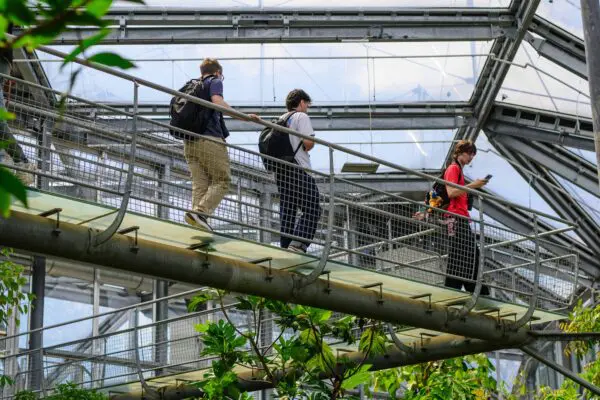
Amsterdam, Netherlands
Legal Constructions of Race in the Netherlands
When:
06 July - 17 July 2026
Credits:
0 EC
Read more
Social Sciences & Educational Sciences
When:
30 June - 04 July 2025
School:
University of Groningen Summer Schools
Institution:
University of Groningen
City:
Country:
Language:
English
Credits:
2 EC
Fee:
555 EUR

The University of Groningen is a pioneer in its dedication to interactional research, including the departments of Developmental Psychology, Educational Sciences, Special Needs Education and Youth Care at the Faculty of Behavioral and Social Sciences, and department of Linguistics at the Faculty of Arts. Long standing collaborations with focus on classroom interactions have been consolidated in the centre of expertise Interactions in Diverse Classrooms. In this summer school, we will bring together the methodological expertise from the University of Groningen, as well as national and international colleagues, providing you with the opportunity to learn about different approaches and methods to study educational interactions.
Building on a unique combination of different disciplinary perspectives, this summer school will appeal to students and early career researchers with an interest, and potentially data, in interaction and learning; it will also welcome applicants without any previous training in the subject, who are interested in exploring classroom interaction as a subject for the continuation of their academic career. Learning, inside and outside schools, happens in interaction between children and their teachers, parents, and peers. It takes human interaction to learn to talk, to do math, to collaborate and to learn autonomously. Research on educational interactions has grown tremendously in the past decade. It reveals important insights for educational improvement. This summer school will offer a broad range of methods to capture and analyze classroom interactions.
Mayra Mascareño Lara – Faculty of Behavioral and Social Sciences, Elisa Kupers – Faculty of Behavioral and Social Sciences & Myrte Gosen – Faculty of Arts
The summer school is primarily intended for graduate students to early career researchers, but will be open to advanced undergraduate students who are willing to take on an inspiring challenge.
No specific prior knowledge or experience is required. Undergraduate students will need to have already acquired 120 ECTS in their bachelor programme.
It is expected that the participants have a sufficient command of the English language to actively participate in the discussions and to present their own work in English.
After this course you will be able to:
- describe the theoretical underpinnings of micro-analytic research on classroom interactions
- formulate your own research questions
- set up a design for research on classroom interactions
- analyze data on classroom interactions using state-of-the-art techniques
The workload is estimated at 56 hours, and includes participation in all summer school activities and preparation (reading all material, poster preparation).
A participation certificate can be arranged upon request to the coordinators. When submitting the request, participants should explicitly indicate if they did not attend one or more sessions.
Fee
555 EUR, regular registration fee
Fee
355 EUR, We have 4 spots for a reduced-fee registration. If you would like to be considered for a reduced fee, please submit a short motivation in your application.
When:
30 June - 04 July 2025
School:
University of Groningen Summer Schools
Institution:
University of Groningen
Language:
English
Credits:
2 EC

Amsterdam, Netherlands
When:
06 July - 17 July 2026
Credits:
0 EC
Read more

Nottingham, United Kingdom
When:
29 June - 10 July 2026
Credits:
5 EC
Read more

Amsterdam, Netherlands
When:
19 January - 30 January 2026
Credits:
4 EC
Read more